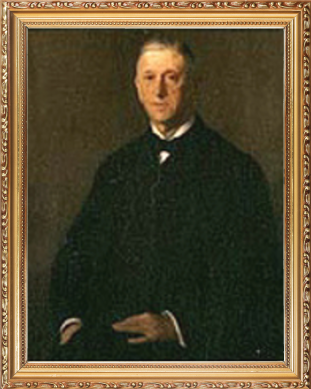Theodore F. Jenkins
 Theodore Finley Jenkins lived from 1849, the year after the great democratic uprisings in Europe, until 1940, just after the beginning of World War II. During nearly a century of living, he championed many reforms.
Theodore Finley Jenkins lived from 1849, the year after the great democratic uprisings in Europe, until 1940, just after the beginning of World War II. During nearly a century of living, he championed many reforms.
Jenkins graduated from Central High School in Philadelphia and, as was then the custom, read law under the guidance of James R. Mitchell, who became Chief Justice of the Supreme Court of Pennsylvania. Jenkins then became associated with Thomas Elcock, to whose practice he succeeded when Elcock went on the bench.
Admitted to practice in 1870, Jenkins went on to lead the Committee of One Hundred's reform campaign, which resulted in the election of Robert E. Pattison as Philadelphia Controller and later as Governor. At 45, Jenkins served for one year as a Common Pleas judge. In 1913, he refused the Philadelphia Bar Association's endorsement for a term on the bench in order to continue to fight for the consolidation of the then five Common Pleas Courts into a single judicial body. He also fought for magisterial reforms, repeal of prohibition and municipal house cleaning in Philadelphia.
Active in many areas, he served as Chancellor of the Philadelphia Bar Association from 1920 to 1923, and as Solicitor for the Philadelphia School District from 1917 to 1935. He was president of the Friendly Sons of St. Patrick and urged Ireland not to secede from the British commonwealth. At the end of his 50th year as a member, Jenkins was awarded the society's Gold Medal, an honor then only held by three other recipients: George Washington; President Cosgrove of the Irish Free State, and the President of the Society as a sign of office.
In 1935, Jenkins married Madeleine Archambault Hart, daughter of Gavin Hart, another Philadelphia lawyer and one of his close friends. He was 91 when he died on October 6, 1940.
